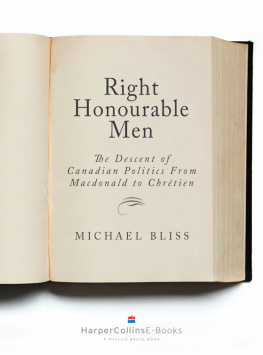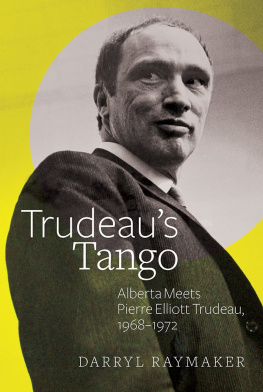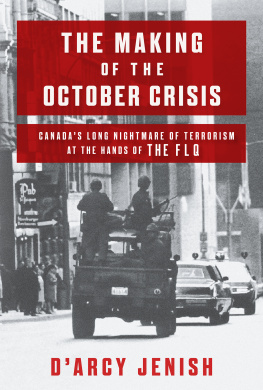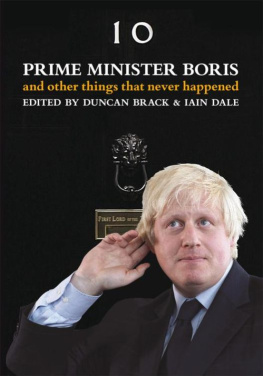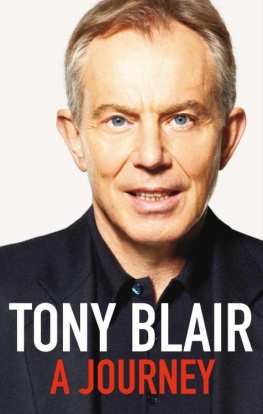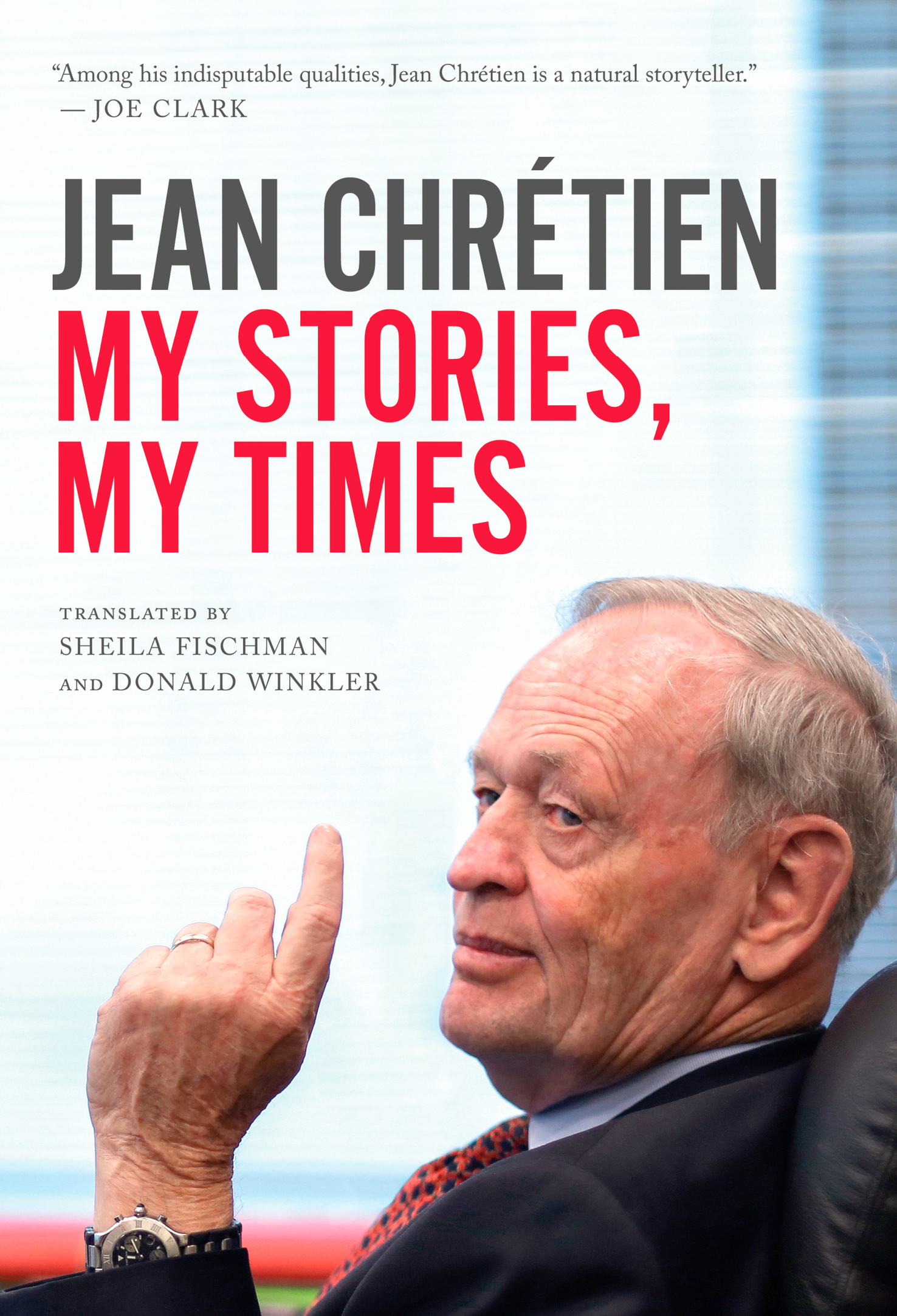Contents
PUBLISHED BY RANDOM HOUSE CANADA
Copyright 2018 Jean Chrtien Professional Corp.
English translation copyright 2018 Sheila Fischman and Donald Winkler
All rights reserved under International and Pan-American Copyright Conventions. No part of this book may be reproduced in any form or by any electronic or mechanical means, including information storage and retrieval systems, without permission in writing from the publisher, except by a reviewer, who may quote brief passages in a review. Published in 2018 by Random House Canada, a division of Penguin Random House Canada Limited, Toronto. Distributed in Canada by Penguin Random House Canada Limited, Toronto.
www.penguinrandomhouse.ca
Random House Canada and colophon are registered trademarks.
Library and Archives Canada Cataloguing in Publication
Chrtien, Jean, 1934
[Mes histoires. English]
My stories, my times / Jean Chrtien; translated by Sheila Fischman and Donald Winkler.
Translation of: Mes histoires.
Issued in print and electronic formats.
ISBN 9780735277342
eBook ISBN 9780735277359
1. Chrtien, Jean, 1934 Anecdotes. 2. CanadaPolitics and government1963-1984. 3. CanadaPolitics and government19841993. 4. CanadaPolitics and government19932006. 5. Prime ministersCanadaAnecdotes. I. Title. II. Title: Mes histoires. English
FC636.C47A3 2018b971.0648092C2018-903533-1
C2018-903534-X
Ebook design adapted from printed book design by Five Seventeen
Cover photograph by Fred Chartrand
v5.3.2
a
To my wife, Aline
To my children:
France, Hubert, and Michel
To my grandchildren:
Olivier, Maximilien, Philippe, Jacqueline, and Katherine
To my great-grandchildren:
William, Gaia, Athena, Amdeo, Sacha, and Ariane
FOREWORD BY JOE CLARK
Politicians are best known for the things we didor didnt doin office, but we have afterlives too, which, among other advantages, allow the opportunity to recall, and sometimes reflect upon, things we saw and heard and felt during and after our privileged days in public office. By definition, such observations are bound to be personal and reflect a point of view, but they can also provide invaluable context to decisions and events that others can know only at a distance. All of the dry and distant facts of history have a story, often a human story, which can be as important and informative as the event itself. Canada is fortunate that Jean Chrtien, at eighty-four, and fifty-five years after his first election to the House of Commons, is publishing some of his reflections on people and events that shaped our history.
By a tradition as old as parliamentary democracy, the distance between the government and the opposition benches in Canadas House of Commons is two swords and one inch apart. That distance symbolizes and encourages debate that is vigorous and adversarial but not fatalto the participants, or to the country. For more than two decades, Jean Chrtien and I sat two sword lengths across from one another in Canadas Parliament.
On some issues, we had deep disagreementsprobably the most important concerned certain provisions of the Constitution Act of 1982 which, as Minister of Justice, he introduced. As Leader of the Opposition, I forced a very long parliamentary debate, winning time for televised public hearings, followed by a successful reference to the Supreme Court, resulting ultimately in amendments that improved the proposed changes. In the end, we both voted for what was called patriation, and for the amended Charter of Rights and Freedomsbut the two of us still disagree on the larger implications for Canadian unity and integrity of the way our constitution was changed during that critical period.
Jean Chrtien and I were each shaped by one other unique opportunity. Each of us was elected to lead our national political party in a time when national parties reached habitually beyond their base and sought to embrace and understand the whole country, all its people and all its parts. We are both the product of an era when contact with voters was direct, face to face, often on contentious groundand those actual human exchanges could temper the influence of advisers or pollsters, or sophisticated interest groups, or ideologues.
Those reality checks seem more elusive today, and the distance greater between citizens and politicians, in an era when leaders interactions with voters are more often electronic than personal, or by way of rallies where citizens are screened before entry. I say that not as elegy, but as explanation of the vital direct access that leaders of our earlier time were privileged to have with the lives and hopes and fears of fellow Canadians.
One of the unexpected privileges of being a party leader was the frankness with which individual citizens would tell you their story. They may never vote for you, but they know that, sometime, you might make decisions which will affect their lives, so they want you to understand their problems and their hopes. And if your pores are open, you learn a lot in those encounters.
As time went on, Jean and I both came to understand that just as in Canada there can be a rare frankness from citizen to leader, so, in this complex international climate, there is often a comparable openness between leaders of different countries. There are so few people with whom a president or prime minister can be frank that they sometimes confide in visiting peers, when the chemistry is right. The little guy from Shawinigan is pretty good at human chemistry, and his reflections on international conversations add extra dimensions to our understanding of international events.
Most Canadians are still framed by where we come from and, in many casesShawinigan, for example, or High Riverour hometown is only a tiny part of the country, or the world, or the era in which we have to function. That poses a special challenge for political leaders, because our profession requires knitting different communities together, rather than focusing more narrowly.
Thus, two questions arise. First, how do leaders learn about our remarkably diverse country, and complicated world? As much as possible by immersion in it, by reaching out, by being open-minded, especially when thats hard. We all fall short; but we learn, as we grow.
So the second question is: What can former leaders teach?
The best historians and social scientists gather a rich and deep and wide array of evidence that is considered objective. But necessarily, their invaluable assessments are most often from the outside looking in. The dimension that former leaders can offer is reflection and perspectiveand often simply storiesfrom the inside looking back.


